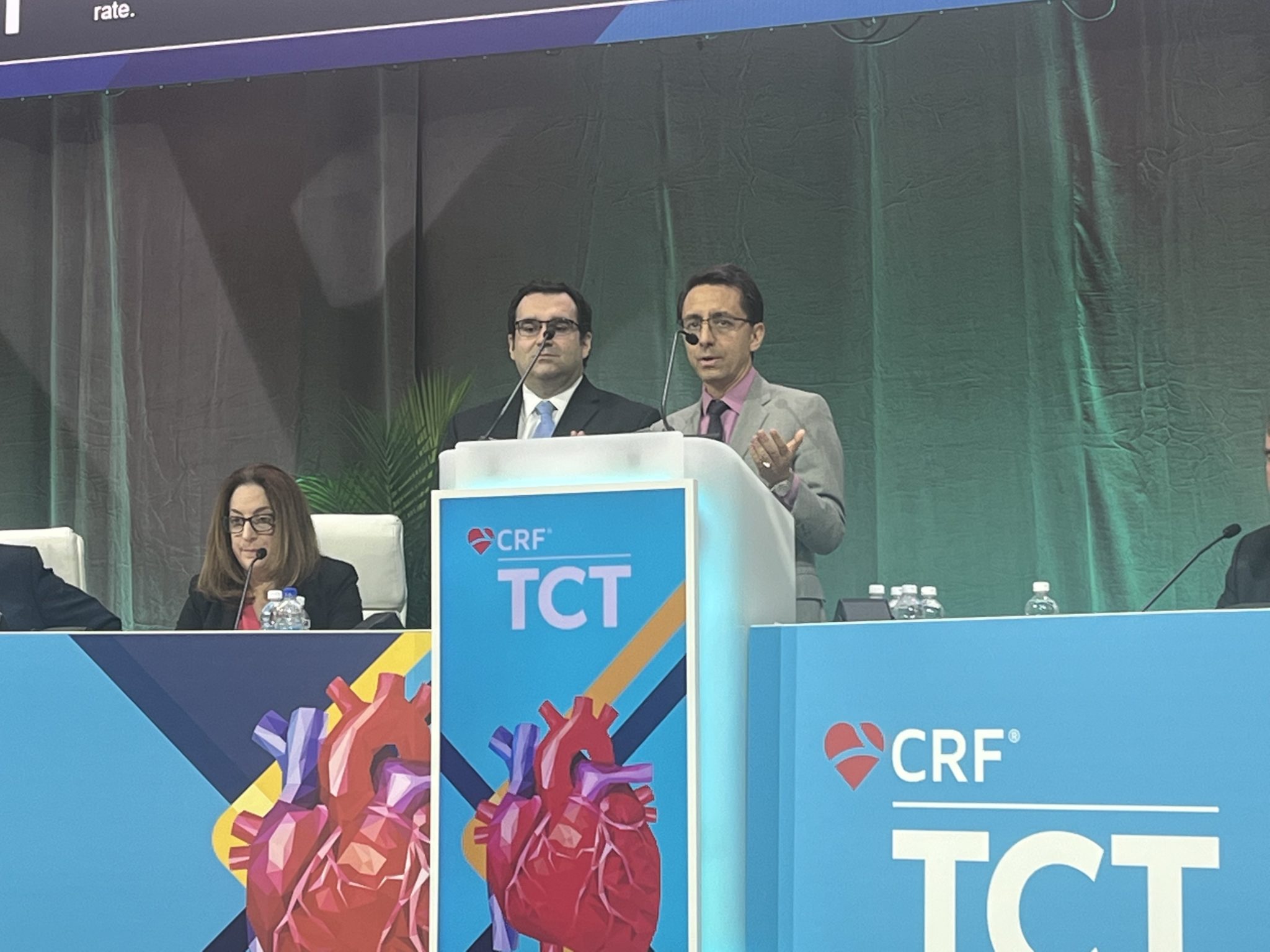
The first randomised trial to compare two transcatheter edge-to-edge repair (TEER) devices —CLASP IID—has concluded that degenerative mitral regurgitation (MR) patients see similar clinical outcomes with the Pascal (Edwards Lifesciences) as with Mitraclip (Abbott).
Findings of the trial were presented during a late-breaking clinical science session at the 2022 Transcatheter Cardiovascular Therapeutics meeting (TCT, 16–19 September, Boston, USA) by Scott Lim (University of Virginia, Charlottesville, USA) and Konstantinos Koulogiannis (Atlantic Health System Morristown Medical Center, Morristown, USA) and published simultaneously in JACC: Cardiovascular Interventions.
The trial included 43 sites in the USA, Canada, and Europe, randomising 180 patients at prohibitive surgical with 3+ or 4+ degenerative MR risk 2:1 to receive either the Pascal (n=117) or MitraClip (n=63) device. The trial’s primary safety endpoint was a composite major adverse event (MAE) rate at 30 days, and the primary effectiveness endpoint was the proportion of patients with MR ≤2+ at six months.
Detailing the results at TCT 2022, Lim and Koulogiannis reported that the trial met its primary safety endpoint, with a 3.4% MAE rate seen in the Pascal group, compared with 4.8% in the MitraClip arm. Added to this, the trial’s primary effectiveness endpoint was also met, with MR of ≤2+ reported in 96.5% of patients in the Pascal arm, compared with 96.8% of those receiving the MitraClip.
Further to this, the investigators reported that the results demonstrated favourable ventricular remodelling, with an improved forward stroke volume, while patients also experienced significant improvements in functional capacity and quality of life.
In their concluding remarks, Lim and Koulogiannis commented that the Pascal system is a “beneficial therapy for significant symptomatic degenerative MR, expanding transcatheter treatment options for prohibitive surgical risk patients”.

In a later session, Jörg Hausleiter (Klinikum der Universität München, Munich, Germany) presented further data on the Pascal device, sharing findings from the PASCAL IID Registry, a prospective registry for TEER in prohibitive risk patients with degenerative MR and complex mitral valve anatomy.
In his presentation, Hausleiter reported that the device achieved favourable safety results, with a high rate of survival of 97.9% and a composite MAE rate of 11.2% at 30 days. He also relayed a “significant and sustained” MR reduction, with 92.4% of patients achieving MR ≤2+ at six months. These findings were allied to significant improvements in symptoms and quality of life, and low post-procedure gradients sustained below 5 mmHg, Hausleiter said.












